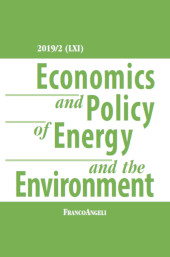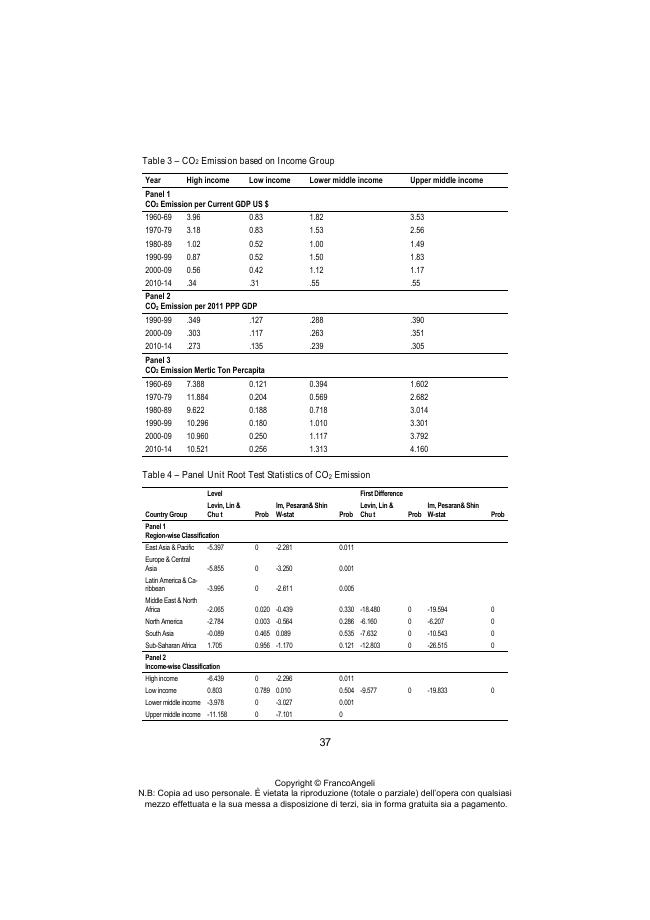Economic growth and environmental degradation : how to balance the interests of developed and developing countries
25-47 p.
In this paper we present a pragmatic basis for a multilateral cooperation to deal with climate change problem after accounting for the interests of both developed and developing economies. We develop our argument for such a cooperation based on the principle of affordability of developed countries and accessibility of developing countries. Towards this, we have estimated a panel Autoregressive Distributed Lag (ARDL) model using data pertaining to groups of countries classified based on region and income from 1960 to 2014. Results show that countries with high Gross Domestic Product (GDP) percapita emit more volume of hazardous Greenhouse Gases (GHG) than their developing counterparts and more importantly, the coefficient of elasticity of emission to the growth rate of GDP is substantially lower for highincome countries.
Therefore, we argue that developed countries may lead the world in the climate change mitigation efforts through emission reduction and promotion of efficient use of energy resources. [Publisher's text].
-
Articoli dello stesso fascicolo (disponibili singolarmente)
-
Informazioni
Codice DOI: 10.3280/EFE2019-002002
ISSN: 2280-7667
PAROLE CHIAVE
- Climate change, greenhouse gas, CO2, panel ARDL



